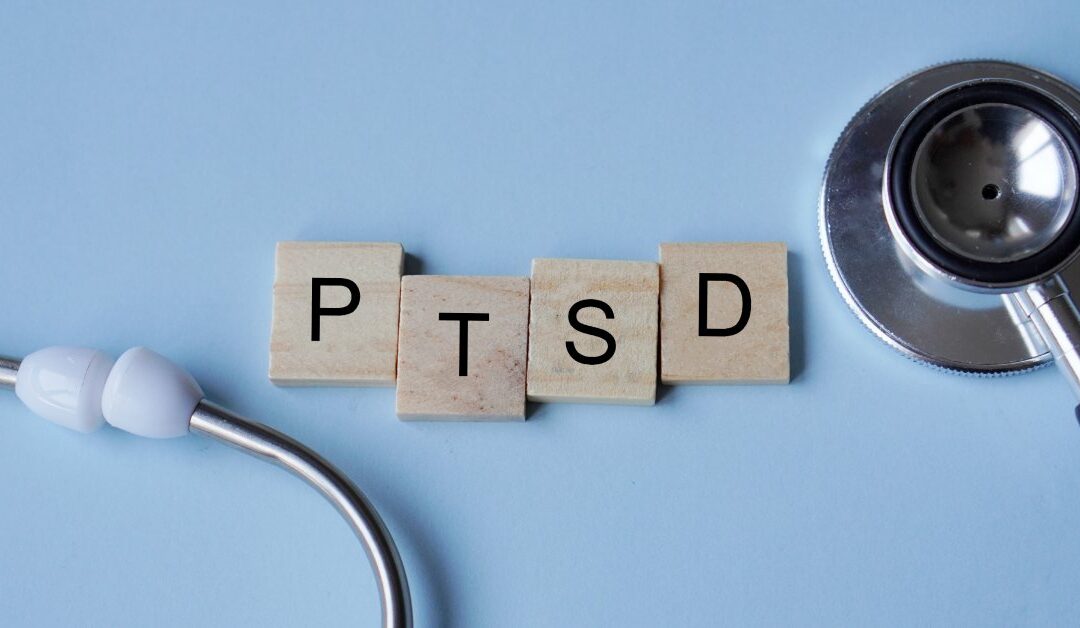Seeking professional help for post-traumatic stress disorder (PTSD) is crucial for minimizing the impact of trauma on an individual’s mental health. For many, finding a path to relief often includes exploring various treatment options, with medication being one of them.
While medication can play a key role in managing PTSD symptoms, its effectiveness can vary across patients dealing with distressing responses to traumatic events. This article explores the pros and cons pf using medication to treat PTSD and important considerations for those who may be considering this option.
Medication Options for PTSD
When treating PTSD, certain medications are often prescribed to help alleviate specific symptoms. Before we dive into how medication can play a role in a person’s road to healing, let’s review the most common types of medication prescribed to help manage PTSD symptoms.
- SSRIs: Selective serotonin reuptake inhibitors (SSRIs) are approved for treating PTSD and work by regulating serotonin levels in the brain to improve mood, reduce feelings of anxiety, and support emotional stability.
- Mood Stabilizers: Mood stabilizers help the brain maintain more consistent emotional responses and may be helpful for individuals who experience intense bursts of anger, irritability, or emotional dysregulation.
- Anti-Anxiety Medications: Some anti-anxiety medications can provide short-term relief for PTSD symptoms such as intense worry or panic attacks.
- Alpha-1 Blockers: Alpha-1 blocker medications are sometimes prescribed to treat sleep disturbances and nightmares.
How Medication May Be Effective for PTSD Treatment
Medication management can be a vital aspect of a treatment plan for individuals with PTSD. Here are five ways medication can effectively treat PTSD symptoms.
Symptom Relief
PTSD symptoms have emotional, psychological, and physical effects on an individual after experiencing or witnessing one or several traumatic events. Medication can help reduce the intensity of symptoms to make daily life more manageable. It works by balancing brain chemicals that affect mood and stress responses, offering individuals a sense of stability and relief.
Reduce Sleep Disruptions
Sleep problems, including insomnia and nightmares, are common for those with PTSD and can significantly impact overall well-being. Treatment options focused on improving sleep can help reduce these disruptions, promoting restorative rest. Quality sleep is a key element of recovery, aiding the mind and body in healing.

Assist with Emotional Regulation
PTSD often makes managing emotions a challenge, leading to feelings of anger, sadness, or anxiety. With the right support, individuals can experience greater emotional stability, enabling them to respond more calmly to stress. Improved emotional regulation fosters healthier relationships and enhances overall quality of life.
Enhance Therapy Outcomes
Symptom relief can make it easier for individuals to engage in therapeutic treatments with a trauma specialist. By reducing the intensity of symptoms, individuals are better able to focus on healing and making progress in therapy. Combining therapy with other supportive measures creates a strong foundation for long-term recovery.
Improve Quality of Life
PTSD can disrupt many aspects of life, including relationships, work, and daily routines. By reducing symptoms and improving emotional balance, comprehensive care can help individuals rebuild these areas. Holistic approaches, such as those available through PTSD treatment in Miami, provide the support needed for individuals to thrive again.
What To Keep in Mind About PTSD Medication
While medications can be powerful tools for managing PTSD, they are not a one-size-fits-all solution. Understanding their limitations and requirements is an essential step in making informed decisions.
Medication Should Be Paired with Other Treatment
Medications can be an important tool in managing PTSD symptoms, but they work best alongside therapy or counseling. This is because prescriptions cannot address the root causes of trauma alone, instead, they primarily regulate neurotransmitter levels linked to PTSD symptoms. By reducing symptoms, medications make it easier to engage in evidence-based therapies.
Prescriptions Require an Official Diagnosis
To access medication to treat PTSD, you typically must receive a diagnosis from a healthcare professional who can present treatment options tailored to your specific symptoms and needs. Collaborating with a qualified provider allows for personalized care and thoughtful recommendations that support your healing process.
Medications Are Not a Cure
Medications won’t cure PTSD but can provide relief from challenging symptoms, helping individuals engage more fully in life and recovery. Long-term healing often requires additional support, such as therapy or lifestyle changes, to address the underlying causes of trauma and foster lasting growth.
Potential Side Effects
Like all medications, those used for PTSD may cause side effects, including nausea, fatigue, or mood changes. Discuss these possibilities with your healthcare provider. Maintaining ongoing communication ensures you can address any side effects and adjust your treatment plan as needed.
Potential Medication Interactions
If you’re taking multiple medications, interactions can occur. To stay safe, always share a full list of prescriptions, supplements, and over-the-counter medications with your provider. This helps prevent complications and ensures your treatment plan is as effective and safe as possible.

Other PTSD Treatment Options
Medication is just one facet of PTSD treatment, and combining it with other methods may produce the best results for improved overall well-being. Here are five examples of non-pharmacological PTSD treatments:
- Trauma-Focused Cognitive Behavioral Therapy (TF-CBT): An evidence-based treatment designed to help individuals process and recover from trauma through cognitive restructuring and teaching coping strategies.
- Prolonged Exposure: Prolonged Exposure (PE) therapy involves gradual exposure to trauma-related triggers in a controlled and supportive setting in attempt to reduce the intense fear or distress often associated with these memories.
- EMDR Therapy: Eye movement desensitization and reprocessing (EMDR) therapy helps clients process traumatic memories by pairing guided eye movements with recollections of past events.
- Holistic Lifestyle Changes: Building a strong support system, maintaining a balanced diet, exercising, and practicing mindfulness are examples of lifestyle shifts that can complement formal PTSD treatments.
- Group Therapy: Provides a sense of belonging by connecting individuals with others who have faced similar experiences. Sharing challenges and triumphs in a supportive group setting offers comfort and encouragement that fosters healing.
Take the First Step Toward Recovery
Medication is a valuable tool for treating PTSD, especially when combined with complementary therapies and lifestyle changes. Understanding your options and consulting with a qualified provider is the first step toward finding the treatment that works best for you.
Trauma specialists at Envision Mindcare are dedicated to helping those with PTSD to live more fulfilling lives with a holistic approach to restoring your health and developing personalized treatment plans. Take action today to regain control and start your path toward healing.

